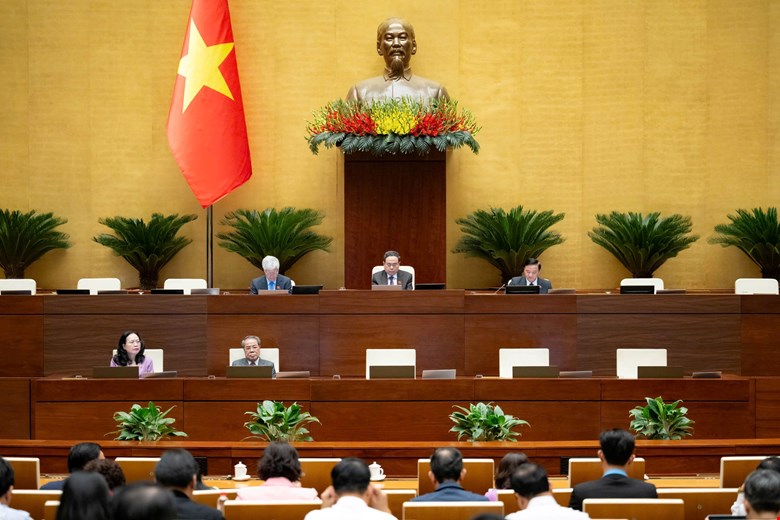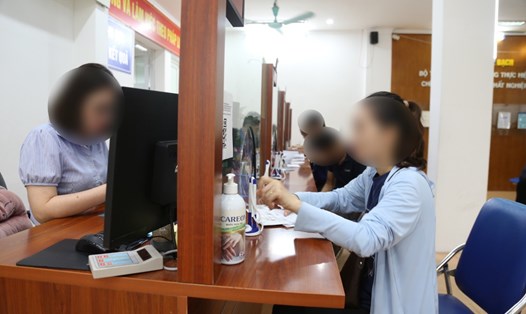Continuing the 10th Session, on the morning of November 11, Government Inspector General Doan Hong Phong presented the draft Law amending and supplementing a number of articles of the Law on Citizen Reception, the Law on Complaints, and the Law on Public Prosecution.
Regarding the Law on Citizen Reception, the draft supplements regulations on the form of online citizen reception. Accordingly, citizens can choose to receive citizens directly or receive citizens online.
The draft law assigns the Government to guide and specify in detail other cases where citizens are refused to be admitted.
To comply with the 2-level local government organization model, the draft law adds a number of tasks of the Chairman of the People's Committee at the commune level: deciding to arrange a place to receive citizens outside the headquarters of the People's Committee at the commune level; promulgating regulations on receiving citizens; assigning a unit to advise on receiving citizens.
The draft law supplements the regulation: The Ministry of National Defense, the Ministry of Public Security, and the State Bank of Vietnam assign inspection agencies to arrange civil servants for citizen reception work; The Ministry without the Ministry Inspectorate assigns appropriate units to arrange civil servants for citizen reception work; the specialized agency under the Provincial People's Committee assigns appropriate units under its management to arrange civil servants for citizen reception work.

Regarding the Law on Complaints, in practice, the settlement of complaints may have to be temporarily suspended or terminated due to: force majeure events or objective obstacles; need to wait for the settlement results of other competent authorities; the complaintant withdraws the petition, the complaintant dies without heirs of rights and interests or the agency or organization of the complaint is dissolved, bankrupt...
Therefore, the draft law supplements regulations on cases of temporary suspension and suspension of complaint settlement. The temporary suspension or suspension shall be carried out by a decision of a competent person, stating the reasons and legal basis, and sent to the complainner, the person being complained and related parties.
Supplementing the regulation that the reclamant can withdraw part of the complaint content; the reclamant can withdraw the complaint by recording the reclamant's withdrawal of the complaint when working with the complaint settler or the person verifying the complaint content.
Regarding the settlement of second complaints, the draft law adds the right of second complaint settlers to consult with specialized agencies when necessary in addition to consulting with the Advisory Council to ensure accuracy in handling complaints.
To comply with the arrangement of the inspection agency system, the draft law adds the responsibility of the Head of the unit assigned to advise on handling complaints at state management agencies without inspection agencies.
In reality, there are cases where complaints do not participate in the dialogue when invited. This makes it difficult to resolve complaints and there is no legal basis for continuing to resolve or temporarily suspend the settlement.
Therefore, the draft law supplements the regulation that in cases where a complaintant is invited but does not participate in the dialogue, the complaint settler will continue to resolve the complaint.
Regarding the Law on Reprimand, the draft law supplements regulations on the principle of determining the authority to resolve complaints in some cases that the Law on Reprimand has not adjusted.
Accordingly, ministers, heads of ministerial-level agencies, and Chairmen of provincial People's Committees shall determine the authority to resolve complaints against agencies, organizations, cadres, civil servants, and public employees at the time of the violation under their management authority, not falling under the cases specified in Clause 3, Clause 4, Clause 5, and Clause 6, Article 12 (Clause 7, Article 12).











